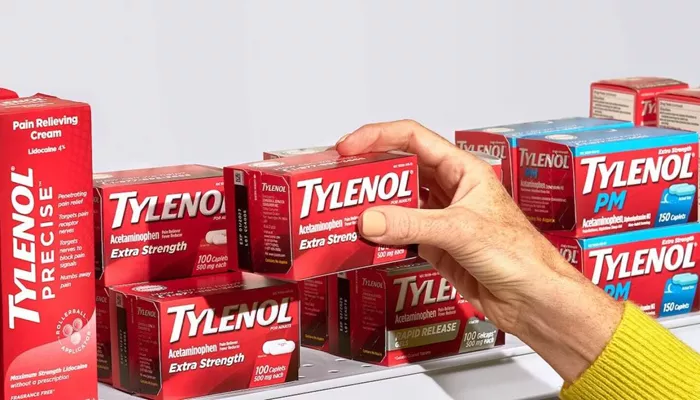Hot flashes are a common symptom experienced by many women during menopause. They can be uncomfortable and disrupt daily life. Women often seek various treatments to manage these symptoms. One question that arises is whether Tylenol, a common pain reliever, can help with hot flashes. In this article, we will explore what hot flashes are, how they are typically treated, and whether Tylenol is effective in alleviating them.
Understanding Hot Flashes
Hot flashes are sudden feelings of warmth that spread through the body and are often accompanied by sweating and flushing. They occur due to the decrease in estrogen levels during menopause, which affects the body’s ability to regulate temperature. Hot flashes can be mild or severe and may occur during the day or at night, disrupting sleep.
Causes of Hot Flashes
The primary cause of hot flashes is the decline in estrogen levels. Estrogen helps regulate body temperature, and when its levels drop, the body may have difficulty maintaining a stable temperature. This leads to the sensation of heat and sweating.
Common Triggers
Certain factors can trigger or worsen hot flashes. These include:
Hot and Spicy Foods: Consuming hot or spicy foods can increase body temperature and trigger hot flashes.
Caffeine and Alcohol: Both can cause blood vessels to dilate, leading to increased heat sensation.
Stress: Stressful situations can trigger hot flashes by affecting hormone levels.
Smoking: Smoking is linked to more frequent hot flashes.
Treatment Options for Hot Flashes
There are several ways to manage hot flashes, ranging from lifestyle changes to medical treatments.
Lifestyle Changes
Simple lifestyle adjustments can help reduce the frequency and severity of hot flashes:
Dress in Layers: This allows you to remove clothing when you feel warm.
Stay Cool: Use fans or air conditioning to keep your environment cool.
Avoid Triggers: Limit consumption of hot foods, caffeine, and alcohol.
Exercise Regularly: Regular physical activity can help manage stress and improve overall health.
Mind-Body Therapies: Techniques like meditation, deep breathing, and hypnosis may help manage stress and reduce hot flashes.
Medical Treatments
Hormone Replacement Therapy (HRT)
HRT is one of the most effective treatments for hot flashes. It involves taking estrogen to replace the declining hormone levels in the body. However, HRT is not suitable for everyone, especially those at risk of certain cancers or cardiovascular diseases.
Non-Hormonal Medications
For women who cannot take HRT, non-hormonal medications are available:
Antidepressants: Selective serotonin reuptake inhibitors (SSRIs) like paroxetine are FDA-approved for treating hot flashes.
Other Prescription Medicines: Clonidine, gabapentin, and pregabalin are sometimes used off-label to manage hot flashes.
Experimental Treatments
Researchers are exploring new treatments, such as a drug called MLE4901, which targets neurokinin B (NKB) in the brain. This drug has shown promising results in reducing hot flashes but requires further testing.
Does Tylenol Help with Hot Flashes?
Tylenol, also known as acetaminophen, is commonly used to relieve pain and reduce fever. However, it is not specifically designed to treat hot flashes. Hot flashes are not caused by pain or fever but by hormonal changes and temperature regulation issues.
Why Tylenol May Not Be Effective
Mechanism of Action: Tylenol works by blocking pain signals in the brain and reducing fever. It does not address the hormonal imbalance causing hot flashes.
Lack of Evidence: There is no scientific evidence to suggest that Tylenol is effective in reducing hot flashes.
Alternatives to Tylenol
If you are experiencing hot flashes, consider the treatment options mentioned earlier, such as lifestyle changes, HRT, or non-hormonal medications. These methods are more likely to provide relief.
Conclusion
While Tylenol is useful for pain relief and fever reduction, it is not an effective treatment for hot flashes. Women experiencing hot flashes should consider other proven methods, such as lifestyle adjustments, hormone replacement therapy, or non-hormonal medications. It’s always best to consult with a healthcare provider to determine the most appropriate treatment based on individual health needs.
In summary, managing hot flashes requires understanding their causes and exploring the right treatment options. By making informed choices and working with healthcare professionals, women can find relief from these symptoms and improve their quality of life during menopause.
Related topics:
- Can Probiotics Help With Hot Flashes?
- What Causes Hot Flashes During the Day?
- Can Soy Milk Help With Hot Flashes?


